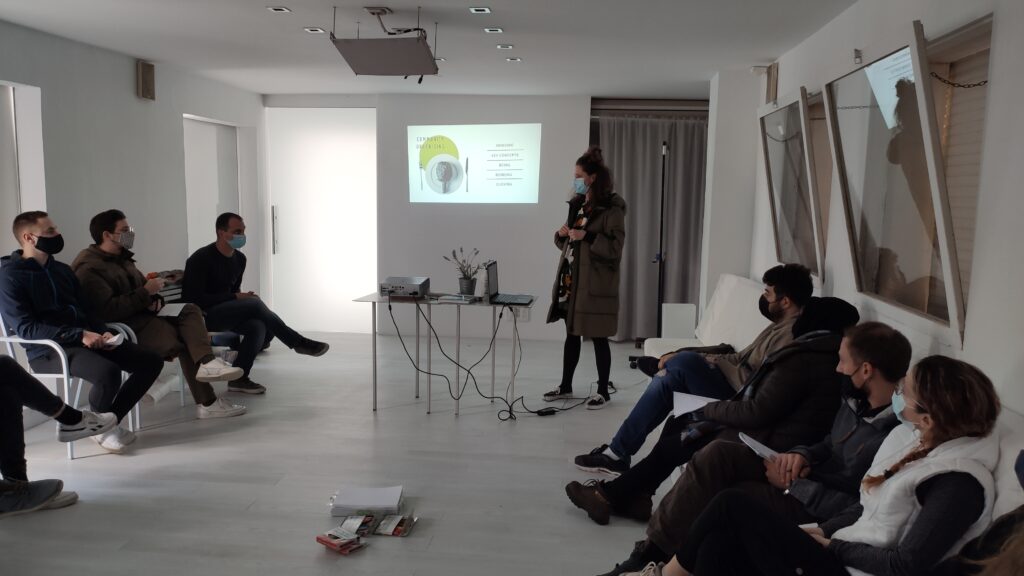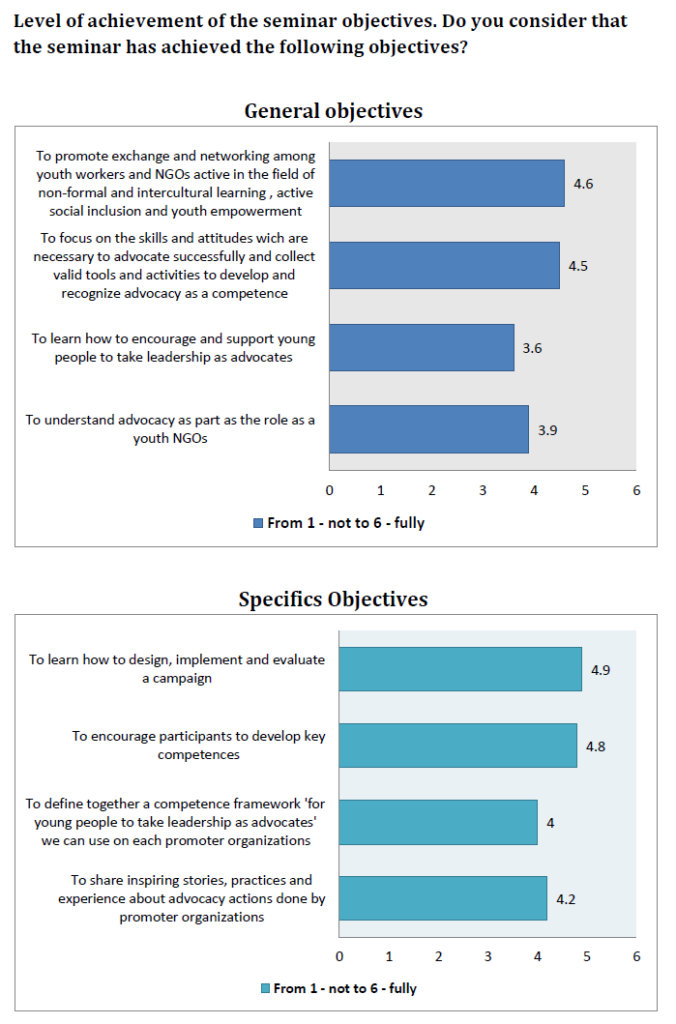
From January 10 to 17, 2022, the Fundació Catalunya Voluntaria has hosted in Vilanova i la Geltrú (Barcelona, Catalonia, Spain) the international mobility activity ‘Youth Leadership for Advocacy’, the first seminar that we have hosted since the start of the pandemic, more than a year after the initial date planned.
Despite the still difficult situation due to the increase in community transmission, 18 representatives of 11 non-profit organizations (including one informal youth group) from 10 countries (Bulgaria, Estonia, Greece, Latvia, North Macedonia, Poland, Portugal, Romania, Serbia and Turkey) travelled to the capital of Garraf to be the protagonists of a learning activity based on the exchange of personal experiences and organizational practices, where the whole group was able to develop new interests, skills and competencies for social transformation.

SEMINAR RESULTS
After reading and analyzing all the final evaluations forms, written by hand by the participants on the last day, FCV reported that the seminar has achieved its objectives, defined exactly two years ago, a few months before the start of the pandemic.
Paying attention to the comments and scores about the general and specific objectives (GO and SO) they have been achieved with a noteworthy high.
Specifically, of the 4 general objectives, the last two have achieved the lowest mark of all, with a ‘good’, being OG3 ‘to identify the knowledge, skills and attitudes necessary to carry out these actions successfully’, with a 6 out of 10, and OG4 ‘to collect valid tools to develop and recognize this specific competence’, with a 6.5 out of 10.

The two first GO, however, have had a notable note, being OG1: ‘to understand that advocacy is part of our role as non-profit and youth organizations’, with a 7.6 out of 10, and OG2 ‘to learn how to support young people to take leadership in organizing new advocacy actions, actively participating in all phases’, with a 7.5 out of 10.
The very personal assessment of each one in terms of the perception of the level of achievement of these objectives results in an average value of remarkable 7.17 out of 10, despite the fact that they are certainly ambitious objectives for a 6-day activity, more taking into account the enormous diversity of contexts and origins of the group and the very different degree of experiences and knowledge on the subject of the activity itself.
FCV highlighted that throughout the entire preparation process, they have exchanged emails and held online conversations with the coordinators of the promoter organizations and with the participants and that the objectives have remained valid throughout that time.

As usual in the FCV, we have asked about logistical aspects (venue, accommodation, meals and coffee-breaks), with an average remarkable mark of 7.65 out of 10.
Regarding the degree of development of the 4 specific critical skills with which we wanted to focus, due to their close relationship with carrying out successful advocacy initiatives, the average score of all the assessments made, again anonymously and individually, was pretty good. When asked participants if the activities were useful to develop them and to what extent, the results are as follows (again, with a value out of 10): networking: 8.4; effective communication: 8.2; campaigning: 8 and leadership: 7.2, being 8 the average score.

The seminar has achieved its objectives thanks to an organizing team assembled by Théo, Sia, Ioanna and Zuhair and coordinated by Lluc, in one hand, as well as thanks to the international team of facilitators, assembled by Nikos, from Greece; Aleksandra, from Turkey and the coordinator himself, responsible for a program of activities where practically the entire group became the protagonist (and if not during the program, at least in the free time): Bóroka, given her experience, presented a method and facilitated sessions; Kate, from North Macedonia, and Mihaela, from Bulgaria, held a workshop, dedicated to effective communication and digital marketing, respectively; Ola and Kasper from Poland and Marian from Romania shared their experience, the first two as organizers of a local awareness-raising action, and the second as director of two advocacy initiatives creating new local and regional infrastructures, or Lorenzo, from Portugal, who helped us start the day with energy by proposing games.

The activity has been possible thanks to the entire group and, also, to the support of the Erasmus+ program of the European Commission and the Spanish National Agency, who relied on the association promoted by the FCV with youth and non-governmental organizations from these countries, with which we hope to continue collaborating in future activities this year.
Source: www.catalunyavoluntaria.cat
For more information, contact Nikos Papakostas or Boroka Balint.




